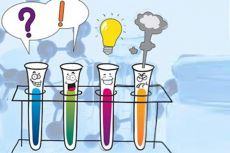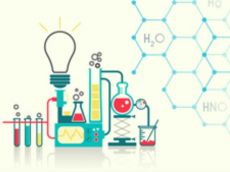Read the following passage and mark the letter A, B, C or D on your answer sheet to indicate the correct answer to each of the questions
To some extent we know that the people we work, live or spend time with are not always being honest with us. They can't always be having a good day, be excited about your success or be completely happy for a colleague who's been promoted instead of them. But what about when deception isn't just about mood, but is actually an important part when interacting with other people?
Generally speaking, deception is, understandably, viewed negatively - if someone has to resort to lying, they're probably not very good at their job or not a very nice person. In the workplace, deceit can toxic in an environment that values trust and teamwork and can damage productivity as a result. However, deception is absolutely necessary in many cases.
In some profession, people are expected to lie (take private investigators, for example). Deception can also be strategic in companies, such as when a call centre instructs employees to pretend that they've located in a different country due to customer biases. And keep in mind that even police officers have to make use of deception to arrest criminals in many cases. Additionally, customer service roles, and especially the kinds of emotional labour frequently carried out by women, also typically call for workers to conceal their true feelings. Do you really want flight attendants to tell you that you should be unnerved and should not remain calm when the plane is shaking, or psychiatrists to tell you that they do not have any sympathy for you at all when listening to your mental problems?
Sometimes, lying is even seen as the more ethical option. A prime example of this is when doctors lie to their patients about their health conditions, obviously not to raise false hopes but simply to cheer them up during treatment. A harmless lie can also spare people from unnecessary hurt, and people who tell it should be praised for their kindness and the good outcome that usually comes from not making a potentially hurtful comment. The most fundamental thing in pro-social lying, or the kind of dishonesty intended to help another person is that it is not about gaining an unfair advantage or otherwise being self-serving, but about delivering little and harmless lies out of care or compassion.
Therefore, it's important to asks ourselves when it is and isn't appropriate to deliver the hard, honest truth, when it's best to step back and offer a more delicate response. More often than not, it’s about striking a balance between the two.
Câu 6 : Which best serves as the title for this passage?
Suy nghĩ và trả lời câu hỏi trước khi xem đáp án
Lời giải:
Báo saiCâu nào tốt nhất làm tiêu đề cho đoạn văn này?
A. Lần Tiếp Theo Bạn Nói Dối. Hãy nghĩ kĩ.
B. Nói dối: Mọi người luôn làm vậy.
C. Những nghề nghiệp mà kẻ dối trá có thể khai thác
D. Khi sự lừa dối tốt hơn sự trung thực
Thông tin ở đoạn cuối bài: “Therefore, it's important to ask ourselves when it is and isn't appropriate to deliver the hard, honest truth, when it's best to step back and offer a more delicate response.”
Tạm dịch: Do đó, điều quan trọng là phải tự hỏi bản thân khi nào là thích hợp và không thích hợp để đưa ra sự thật khó và trung thực, khi nào thì tốt nhất nên lùi lại và đưa ra một phản ứng tế nhị hơn.
Chọn đáp án D
Câu 7 : According to paragraph 1, people around us are not always honest because _______.
Suy nghĩ và trả lời câu hỏi trước khi xem đáp án
Lời giải:
Báo saiTheo đoạn 1, những người xung quanh chúng ta không phải lúc nào cũng trung thực vì _______.
A. Họ thực sự không thích trung thực mọi lúc.
B. Họ cần phải nói dối để được thăng chức.
C. Họ ghét nó khi người khác thành công.
D. Không phải lúc nào họ cũng cảm thấy tích cực về mọi thứ.
Thông tin: They can't always be having a good day, be excited about your success or be completely happy for a colleague who's been promoted instead of them.
Tạm dịch: Không phải lúc nào họ cũng có một ngày tốt lành, vui mừng về thành công của bạn hoặc hoàn toàn hạnh phúc vì một đồng nghiệp được thăng chức thay vì họ.
Chọn đáp án D
Câu 8 : The word “toxic” in paragraph 2 is closet in meaning to _______ .
Suy nghĩ và trả lời câu hỏi trước khi xem đáp án
Lời giải:
Báo saiTừ "toxic" trong đoạn 2 gần nghĩa nhất với:
A. unpleasant: không dễ chịu
B. lethal: gây chết người
C. uncaring : không quan tâm đến, thiếu lòng trắc ẩn
D. brutal: độc ác
Toxic: độc hại ~ lethal
=> Chọn đáp án B
Câu 9 : The word “unnerved” in paragraph 3 can be best replaced by _______ .
Suy nghĩ và trả lời câu hỏi trước khi xem đáp án
Lời giải:
Báo saiTừ tốt nhất có thể thay từ "unnerved" trong đoạn 3 là _____.
A. enraged - enrage: làm giận điên lên
B. concerned: lo lắng, sợ hãi
C. thrilled - thrill: hài lòng và hứng thú
D. inspired - inspire: truyền động lực, truyền cảm hứng
+ Unnerved: sợ hãi ~ concerned
=> Chọn đáp án B
Câu 10 : The word “it” in paragraph 4 refers to _______ .
Suy nghĩ và trả lời câu hỏi trước khi xem đáp án
Lời giải:
Báo saiTừ "it" trong đoạn 4 đề cập đến ______.
A. điều cơ bản
B. lời nói dối ủng hộ xã hội
C. sự lợi dụng không công bằng
D. người khác
Dựa vào ngữ cảnh tác giả sử dụng từ “it”:
“The most fundamental thing in pro-social lying, or the kind of dishonesty intended to help another person is that it is not about gaining an unfair advantage or otherwise being self-serving, but about delivering little and harmless lies out of care or compassion.”
=> “it” thay thế cho “pro-social lying”
=> Chọn đáp án B
Câu 11 : Which of the following is TRUE, according to the passage?
Suy nghĩ và trả lời câu hỏi trước khi xem đáp án
Lời giải:
Báo saiĐiều nào sau đây là ĐÚNG, theo đoạn văn?
A. Bác sĩ tâm thần không được thông cảm với bệnh nhân.
B. Nhân viên của tổng đài không được tiết lộ quốc tịch của họ.
C. Nói dối là một phần công việc của điều tra viên tư nhân
D. Cảnh sát không bao giờ được nói dối, ngay cả khi bắt tội phạm.
Thông tin:
+ “psychiatrists to tell you that they do not have any sympathy for you at all when listening to your mental problems” (bác sĩ tâm thần nói với bạn rằng họ không có bất kỳ thiện cảm nào với bạn khi lắng nghe những vấn đề tâm thần của bạn)
A sai
+ “Deception can also be strategic in companies, such as when a call centre instructs employees to pretend that they've located in a different country due to customer biases.” ( Lừa dối cũng có thể là chiến lược trong các công ty, chẳng hạn như khi một trung tâm cuộc gọi hướng dẫn nhân viên giả vờ rằng họ đang sống ở một quốc gia khác do thành kiến của khách hàng.)
B sai
+ “In some profession, people are expected to lie (take private investigators, for example)”. (Trong một số nghề nghiệp, mọi người được cho là sẽ nói dối (lẩy các nhà điều tra tư nhân làm ví dụ).)
C đúng
+ “And keep in mind that even police officers have to make use of deception to arrest criminals in many cases.” (Và hãy nhớ rằng ngay cả các nhân viên cảnh sát cũng phải sử dụng sự lừa dối đê bắt giữ tội phạm trong nhiều trường hợp.)
D sai
=> Chọn đáp án C
Câu 12 : Which of the following can be inferred from the passage?
Suy nghĩ và trả lời câu hỏi trước khi xem đáp án
Lời giải:
Báo saiĐiều nào sau đây có thể được suy ra từ đoạn văn?
A. Việc không trung thực ở nơi làm việc cần được khen ngợi và đề cao.
B. Lời nói dối ủng hộ xã hội là lời nói dối được nói ra với mục đích tốt.
C. Các bác sĩ nên luôn nói dối để giữ cho bệnh nhân của họ vui vẻ.
D. Những người trung thực sẽ không bao giờ trở nên thành công ở nơi làm việc.
Thông tin: The most fundamental thing in pro-social lying, or the kind of dishonesty intended to help another person is that it is not about gaining an unfair advantage or otherwise being self-serving, but about delivering little and harmless lies out of care or compassion.
Tạm dịch: Điều cơ bản nhất trong việc nói dối ủng hộ xã hội, hoặc kiểu không trung thực nhằm giúp đỡ người khác là không phải để đạt được một lợi thế bất công hay để phục vụ bản thân, mà là việc đưa ra những lời nói dối nhỏ bé và vô hại vì sự quan tâm hoặc lòng trắc ẩn.
Chọn đáp án B
Đề thi thử tốt nghiệp THPT môn Tiếng Anh năm 2022-2023
Trường THPT Lý Thường Kiệt












